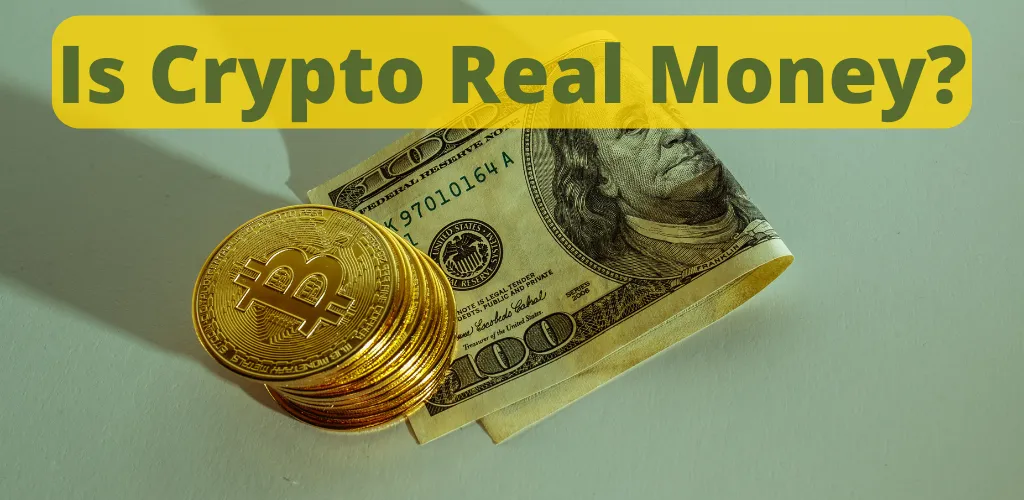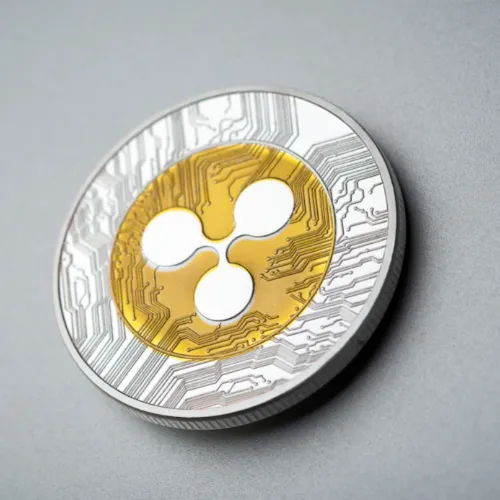
Cryptocurrencies have been circulating since 2009 when Bitcoin was launched, and they now have a combined market value of over $2 trillion.
This unprecedented surge in popularity has created thousands of cryptocurrency millionaires.
However, could this trend be a speculative bubble, as many fortunes have shriveled up after the recent price plunge?
Although, despite the recent decline in value, cryptocurrencies are poised to continue to change the nature of money and will continue to evolve in the future as well.
Cryptocurrencies are digital currencies, not physical or fiat currencies, also called cash. You can spend, save, and invest with them like regular money. But even though crypto does have similarities to fiat currencies or what's considered real money, they’re not the same thing.
Also, contrary to some people’s doubts about cryptocurrency, it is still believed by others that the world will be populated by people using this virtual currency soon.
Now, the traditional view of the nature of money holds that it is a physical commodity.
However, a second theory, called the State Theory of Money, holds that money is a debt-based entity that enables people to pay taxes.
Also, you may have heard the phrase "cryptocurrency" thrown around lately, but what is it and is it real money?
Now, as I just said cryptocurrencies are not physical, and their value is based on supply and demand.
Because of this & few other variables, like decentralization, some people think a good investment strategy when it comes to cryptos would be to buy and hold.
Now below is a primer on a few popular cryptocurrencies, including Bitcoin, Ethereum, Litecoin, and Litecoin Cash.
Let’s dig into them a little bit and see if we can figure out if they’re actually real money or not.

Bitcoin was released in 2009.
Now, you transact (buy & sell) in Bitcoin using crypto keys, which you store in a cryptocurrency wallet.
The details are recorded in a virtual public ledger called the blockchain.
The blockchain records all transactions, and the value of a Bitcoin varies like conventional currencies except with more volatility, at least for now.
Since Bitcoin is a virtual currency and relatively new as far as money is concerned, it can be a risky investment.
Also, bitcoin and other cryptocurrencies aren’t like regular money, and by that I mean they aren’t regulated by any one entity or government.
Now, this can be good or bad depending on how you look at it.
Another thing to keep in mind is that if you intend to buy any bitcoin always be sure to keep track of your crypto wallet.
Because if you lose it, there goes your bitcoin.
Approximately 20% of all Bitcoin is lost permanently.
Now, as mentioned above, bitcoin does not have a central authority.
Its value is derived from its supply and demand.
Also, Bitcoins are not backed by gold or silver, but neither is fiat currency (regular money) anymore either.
Oh, yeah, one more thing, its decentralization prevents any central authority from changing its core attributes.
If you're thinking of launching a cryptocurrency investing project, you may have wondered: Is Litecoin real money?
This cryptocurrency has been around for about ten years, and its numbers have consistently remained steady throughout that time.
You may find out that you can make a profit in the future, as this digital currency might break through its competition and overtake one of the thousands of other cryptocurrencies.
Litecoin has a supply limit four times larger than Bitcoin, with 84 million LTC compared to 21 million BTC.
In addition to its high demand, it is relatively stable compared to some of the other altcoins.
The decentralized digital currency Litecoin operates on a Proof of Work agreement convention and a Scrypt hashing calculation.
Every time you mine a new square on the chain, you'll receive a new Litecoin.
Each effective square is worth 25 LTC.
Also, since pretty much everything done over the internet is susceptible to hacking, choosing the proper exchange for your investment needs is essential.
To buy any Litecoin, you must first create a cryptocurrency wallet, which is similar to a bank account when dealing with regular money.
If you're unsure whether Ethereum is real money, you might want to consider the following factors.
This crypto-currency is not backed by cash flow or hard assets, but it is fast becoming the second-largest blockchain in the world.
It may very well overtake Bitcoin in a few years and be adopted by large companies like Facebook and Google.
You can also use it as collateral in a crypto loan, as an investment, or to pay transaction fees.
Another thing, Ethereum allows you to create assets, such as smart contracts and “tokens”.
These assets have been used to tokenize, traditional currencies, real estate, art, and even yourself.
There are a variety of applications and platforms based on Ethereum.
For example, Matcha can search multiple cryptocurrency exchanges to find the best price for any given coin.
Likewise, Ethereum-powered apps can allow users to sell art or goods directly to buyers.

Ripple's crypto startup has a market cap of $10 billion, counting investors like Andreessen Horowitz and SBI Holdings.
Although, the company did become a subject of an SEC investigation in late 2020.
Its founders were accused of selling unregistered securities and received a $700,000 fine.
However, even though regulatory uncertainty in the U.S. has slowed the growth of Ripple, it has gained traction in markets outside the U.S.
This may indicate that Ripple is a real money alternative, but its future growth is still unknown.
Now, Ripple is a digital currency that operates in its payment network called the "RippleNet.”
There are some benefits to using Ripple as a form of payment as well.
This network allows users to quickly and securely transfer funds without transaction fees from one party to another.
Also, Ripple offers a line of credit through its XRP currency.
The XRP token was the first cryptocurrency to offer this service.
Ripple was one of the first to do this in 2011.
Ripple's XRP currency is also unique from other cryptocurrencies in that it is not created by mining.
Instead, Ripple owns 6% of XRP to promote it.
Half of these tokens are held in reserve for possible future market sales.
Unlike Bitcoin, XRP transactions are verified by several banks and other entities.
For this reason, investors cannot earn XRP by mining, but rather, they can earn it by building on its Ledger.
XRP's value has fluctuated wildly throughout its history, and those who own XRP would be surprised to learn that it is considered to be real money.
The coin was worth $0.06 at its inception but rose quickly later in 2017.
It also briefly surpassed Ethereum’s market cap.
Ripple's primary goal is to provide borderless payments.
However, XRP does have its share of high-profile issues.
One of these issues is Ripple's SEC lawsuit.
Also, like other cryptocurrencies, XRP has fluctuated significantly in value over the past few years.
In DEC. of 2017, the price of XRP hit a record high of $2.23.
This gave it a value of $86.3 billion, and it surpassed Ethereum as the second-largest cryptocurrency in market cap at that time.
This increase occurred around the same time that bitcoin hit one of its all-time highs of $20,000 per BTC.
However, the crypto was delisted from many platforms in 2020 after Ripple was sued by the United States Securities and Exchange Commission over the alleged illegal sale of $1.3 billion in unregistered securities.
Although, according to a recent article in (CNBC) Ripples CEO Brad Garlinghouse said their court battle has gone exceedingly well.
To access XRP trading volume, visit Ripple's XRP markets page.
This page will allow you to see which exchanges currently list XRP and how much it is traded.
You may be wondering whether Litecoin Cash is real money or just a scam.
Now, there are some flaws in the cryptocurrency space.
So, to avoid being scammed, make sure you do your research and due diligence before investing in any crypto.
So, Litecoin Cash (LCC) is an altcoin that lets you buy and sell goods and services anonymously and privately.
Also, Litecoin Cash came about from a fork in Litecoin.
(Investopedia) has a pretty good explanation of what a hard fork is.
Litecoin cash's name is a nod to the popular Bitcoin cash, which sparked the first wave of cryptocurrency forks in 2018.
While most cryptocurrency enthusiasts view Bitcoin as the money of the future. It still doesn't remain that easy to define the role of crypto as an actual currency, at least not for the time being. However, some see it as an excellent way to get rid of central banks and government-controlled fiat currency. Where these governments control the money supply, and any time they want, they just print more and depreciate its value. Now, having more notable cryptocurrency exchanges has made it easier for people to use crypto as money. Although going forward mass adoption is still the primary problem, when it comes to using it in the same way as regular money. So, even though crypto has traits & similarities when it comes to what most people call real money, it also has differences too. Meaning they’re not the same thing.
Great post.
From your email address, I'm assuming your name is Ben 🙂
So thank you ben, I'm glad you enjoyed it!
Zach "The Prosperous View"